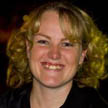I’m a Scientist is like school science lessons meet the X Factor! School students choose which scientist gets a prize of $1000 to communicate their work.
Scientists and students talk on this website. They both break down barriers, have fun and learn. But only the students get to vote.
This zone is the Disease Zone. It has scientists studying the causes and processes of illness . Who gets the prize? YOU decide!









Dear Hana, Germy and Minheesunwoo; It is very good question! It looks like unless scientists discover something new or important, it is very hard for them to earn lots of money. But science doesn’t have to be something happening in the research lab only. What is happening in your kitchen is a part of science. It doesn’t have to give a big impact but still could be very important to improve what has been done without change for ages. In such cases, you or your mother, as name-less scientist, could earn lots of money if you develop the idea into new product, etc.
What do scientists exactly do? It may be different depending on the fields of scientists but usually they make hypotheses, design experiments to prove them or to give logical explanation. Then they make presentation or publish in journal what they found. Their idea has to be proven by others and stand the test of time to be accepted among the scientists. If so, the hypothesis may be accepted as a theory, otherwise, it just disappear.
1
Heheheheheh, money isn’t everything. But yes you’re right in a way. We work hard (like other people), then hope we get good results which we can then publish in scientific journals. And those publications help us to show the government and other funding bodies (e.g. Heart Foundation) that we are good at our work and they’ll be happy to give us money to continue our work!
1
Very good question guys…most people think that scientists only work in research labs making discoveries, but that’s not true. Some people, like me for example are what is called ‘applied scientists’. So that means we take the research of other scientists and apply the theories so we can use them every day.
I do science everyday, but I’m in a diagnostic laboratory so I run laboratory tests on patient samples and get results so that doctors can know whats happening inside their bodies and treat their illnesses.
Other types of scientists I can think of that may not necessarily ‘make discoveries’ but are still doing science might be metallurgists and geochemists on mine sites, food scientists and sugar chemists in sugar mills, just to name a couple.
1
A scientist is anyone who uses scientific method to learn things and answer questions. You start with an ‘observation’, something you notice from looking at the world. Let’s say “dogs have fur”. But what is their fur made out of? This is our question that we want to answer. We come up with an answer that we think might be right: I think dogs have fur that is made out of lots of tiny, microscopic Skittles! This is known as a ‘hypothesis’. Sometimes it is just a guess, sometimes it is based on things you already know. To test our idea, we do experiments that give us more information, so in this case, we might look at dog fur under a microscope, so we can see it in more detail. I’d then see that the fur I was looking at was not made from skittles, but cells. So I refine my answer (Not all dog fur is made from Skittles, but some might be), and test it again with fur from lots of different dogs. Every time I do, I learn more. Eventually, I have enough data to come to a conclusion: “Dog fur is not made out of Skittles.”
Ok, that was a silly example, but we all pretty much use the same basic method, whether you look at how plants grow, why volcanoes erupt, try to figure out what bacteria is making someone sick, or what a distant planet is made from. As Soon said, you even use the scientific method when you are in the kitchen (Hypothesis: If I cook flour, eggs and milk together it will be yummy. Experiment: Make pancakes and eat them.)! Not all scientists are trying to discover new things that no one has ever seen before; a lot of the time we are looking at changes to things we already know about. Kym has already given a good example of this! And as Natasha said, if you are a research scientist, and you can publish your results, you can ask the government, or universities, or funding bodies to give you money to help you do your experiments.
1
I like the other answers, so I’m just going to make a couple of points here. There are a lot of ways to do science, and many of them aren’t in a lab making discoveries or creating new products. In one way, you’re right: scientists that make a big discovery that affects people’s lives may make a lot of money. On the other hand, even those that make a big discovery may not make a lot of money. Sir Alexander Fleming discovered penicillin, the first antibiotic, in 1928 but it didn’t make him rich. In fact, despite the massive importance of his discovery, the problems he had in following up on the research made him eventually abandon it! It was up to people like (the Australian!) Howard Florey, among others, to make penicillin useful and in large quantities. Florey, though he was refining something discovered by someone else, eventually won the Nobel prize for his work.
Another thing to remember about science is that it is a team effort. As scientists, we build on the knowledge that other scientists have produced before us; we take it, tweak it, add our bit to it the best we can, and then release it back into the world for others to use and adapt. And we often work together on these questions, pooling our resources, because unlike what you might see on TV and in movies, big discoveries by single geniuses aren’t very common any more. The famous scientist Isaac Newton – he of the apple and gravity – wrote in a letter to a colleague that ‘if I have seen further it is by standing on the shoulders of giants’. We’re all standing on each other’s shoulders nowadays, and we can see a lot further for it.
1